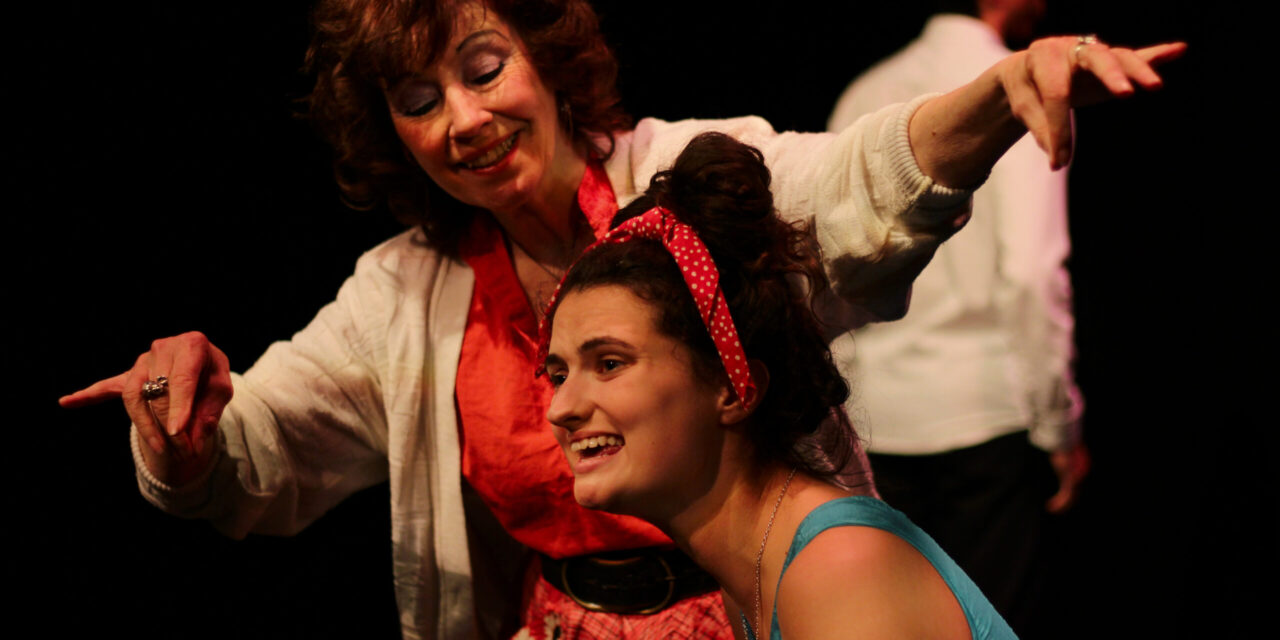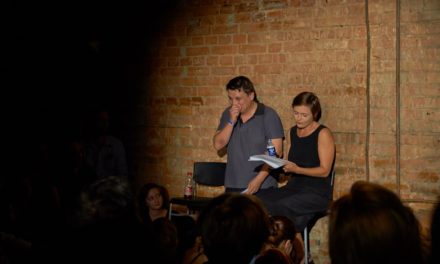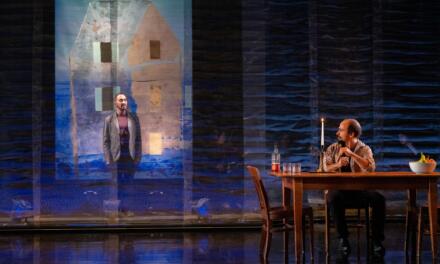In September 2019, the UNESCO Cities of Literature Short Play Festival took place in Dunedin, New Zealand. One of the major events marking the University of Otago’s 150th anniversary, the Festival was hosted by the University’s Theatre Studies program in partnership with Dunedin UNESCO City of Literature. Although very modest when compared to the pantheon of arts festivals around the world, the UNESCO Short Play Festival brought together playwrights, dramaturgs, and other theater practitioners from different countries, as well as from around New Zealand, for eight intensive days of productions, readings, workshops, panel discussions, and exchange. It also represented a significant pedagogical initiative. Over forty students – comprised of Honours and other fourth-year Theatre Studies students, almost all second- and third-year Theatre Studies majors as well as Bachelor of Performing Arts students – were involved in nearly every aspect of the Festival, from its design and planning, to its execution and evaluation.
With the aim of placing creative and cultural industries at the heart of urban development plans, in 2004 UNESCO – the United Nations Educational, Scientific and Cultural Organisation – established a Creative Cities Network, representing seven fields. These include Crafts and Folk Arts, Media Arts, Film, Design, Gastronomy, Literature, and Music. Dunedin was granted City of Literature status in 2014, the first New Zealand city to become a Creative City. Membership of the international network entails a responsibility to develop international, national and local-global links and initiatives. The first UNESCO Cities of Literature Short Play Festival was held in Heidelberg in 2016 – a festival of 20-minute plays in English largely from universities and representing five UNESCO Cities of Literature.
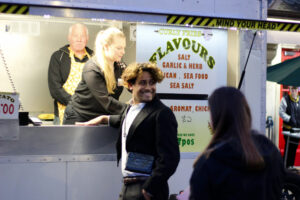
Actor Tunui Wano interacts with food truck proprietors and audience members in #musiciansaresexierthannormalpeople by Annabel Wilson, UNESCO Cities of Literature Short Play Festival, Dunedin, New Zealand, September 2019. Photo credit: Martyn Roberts
Our 2019 Festival altered the template somewhat. We invited professional playwrights and theater companies, as well as to tertiary institutions, to bring new play productions to Dunedin or to submit scripts for our students to stage. We also offered the option of submitting 20-minute extracts of longer plays. We invited all UNESCO Cities of Literature, but with the proviso that scripts in languages other than English, would be performed by the submitting company or institution. Though we had initial expressions of interest, we ended up with no plays in other languages. We also extended the invitation to New Zealand-based companies, and to local high schools. We duly hosted six visiting productions and companies from Australia, Heidelberg, and elsewhere in New Zealand. Meanwhile, we received more than 90 scripts from around the world, including the following Cities of Literature: Heidelberg, Seattle, Baghdad, Manchester, Edinburgh, Ulyansk, and Melbourne. We also had submissions from around New Zealand. We selected 21 for workshop-style productions, and others for development workshops and rehearsed readings. The productions were fully rehearsed, but performed in a Poor Theater style, with basic elements of set and props. Writers of some of those plays also attended the Festival, including several from outside New Zealand.
The Festival opened with a mihi whakatau (welcome ceremony) from the city where representatives of local iwi (tribal groups), Mayor of Dunedin Dave Cull, University of Otago Vice-Chancellor Professor Harlene Hayne, Festival Director Professor Stuart Young, Theatre Studies student representative Zoe Connor, and Festival visitors all gave speeches.
Three eminent keynote guests were part of the festival. First was Tanya Palmer, then-Producer and Director of New Play Development at Chicago’s Goodman Theatre, one of the leading producers of new writing for the stage in the United States. Victor Rodger, a prominent New Zealand playwright, former Burns Fellow at the University of Otago, and currently a scriptwriting tutor at the International Institute of Modern Letters at Victoria University of Wellington, also spoke. They were complemented by playwright and dramaturg Fiona Graham, Director of the MA in Dramaturgy and Writing for Performance at Goldsmiths College, University of London. They provided written feedback to each of the playwrights whose work was staged during the Festival. Together with Art Borreca, Co-Head of the Iowa Playwrights Workshop and of the MFA Programs in Playwriting and Dramaturgy at the University of Iowa, they conducted a series of dramaturgical workshops, and participated in forums on playwriting and dramaturgy.
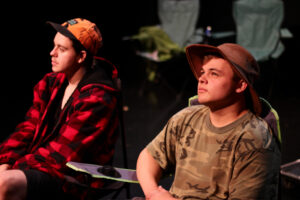
Cain Sleep and Quinn McHardy in It’s Your Shit by Liz Breslin, UNESCO Cities of Literature Short Play Festival, Dunedin, New Zealand, September 2019. Photo credit: Martyn Roberts
Palmer and Graham offered 90-minute forums that incorporated aspects of practice. Palmer’s talk about New Play Development was followed by guided exercises that allowed attendees to put some of her methods to practice. Graham’s “How to Give Dramaturgical Feedback” workshop required the attending writers to bring a project idea. They were paired up, then each partner had the opportunity to act as dramaturg, helping to explore the other’s idea. Each of the four guest dramaturgs also conducted a two-hour New Play Development workshop, in which two plays received 20-minute readings, mostly by student actors. These were followed by 40 minutes of discussion and questions. Workshopped plays, by a range of local and visiting playwrights, included The Ships Bones by Julia Ludbrook (Christchurch, New Zealand), Together by Thomas Pierce (Seattle, Washington, USA), The Tom by Hayley Lawson-Smith (Melbourne, Australia), Bastard Factory by Sarah Harpur (Wellington, New Zealand), and Dayboy by Harrison Kennedy (Dunedin, New Zealand).
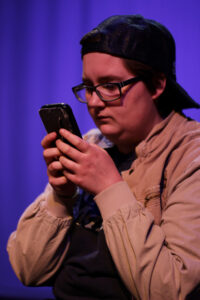
Tymesha Cousins in Modern Love by Thomas L. Pierce, UNESCO Cities of Literature Short Play Festival, Dunedin, New Zealand, September 2019.
Photo credit: Martyn Roberts
Moreover, the four dramaturgs also spoke about their practice and experiences and took questions from the audience at a Dramaturgy Panel. A Playwriting Panel, comprising of playwrights Victor Rodger, Peta Tait, and Fiona Graham, chaired by director and dramaturg Lisa Warrington, talked about writing processes. The panels and the New Play Development workshops were free and open to the public.
In order to incorporate the Festival into the Theatre Studies teaching program, and to maximize the students’ opportunity to participate in the Festival and develop their skills, we designed two Special Topic courses. In these courses, the students provided technical support to the visiting productions and staged the other 21 shows. They acted, directed, and stage-managed, they designed and arranged sets, costumes, and props, and they designed and operated the lighting and sound. They also took responsibility for production management, marketing, and liaising with local schools, providing high school students and teachers with an education pack and the opportunity to watch rehearsals and attend shows. Meanwhile, they played an important role in hosting guests by providing manaaki (hospitality) for visiting playwrights and performers. In performing these various tasks, the students were mentored by members of the Theatre Studies staff, by members of the University’s support staff such as from the University’s Events and Marketing team, and by four professional theater practitioners, including a production manager.
A small group of senior students also participated in the task of assessing the submitted scripts and curating the Festival, under the direction of Amanda Faye Martin, the Playwriting Fellow in our Theatre Studies program. While quality was an important consideration in selecting plays, we were also concerned that the program be as broad and diverse as possible. As such, they factored in geographic representation, a writer’s profile, dramatic and theatrical form, subject matter, and so on. We were able to pursue that aim and to produce a larger number of scripts, by engaging nine professional actors, who performed a variety of roles in productions, rehearsed readings, and script workshops that would otherwise have been difficult to cast from our students, because of a character’s age or gender identity, or particular experience or skills required.
Amidst that range and diversity of scripts, several key, recurring themes and preoccupations emerged. For instance, some plays explored issues to do with economics and environmental sustainability. In Abby Howells’ darkly comic White Men, five middle-aged white men wearing business suits – all played by young women – sit atop rocks as the ocean rises around them. Convening endless board meetings, they argue about power, money, assets, and meeting protocols while the sea levels continue to increase. Environment and economics are also at the fore in Liz Breslin’s comic It’s Your Shit, a longer work from which a selection of scenes was performed. The play revolves around the detrimental effect on the environment brought about by freedom campers, who are ubiquitous in many New Zealand tourist centers. Freedom camping refers to a practice whereby holidaymakers are permitted to camp on public land that is not designated as a formal campsite and hence is without amenities (New Zealand Government “Freedom Camping” website). The campers’ vehicle must have fully self-contained toilet facilities; unfortunately, this stipulation is too often ignored by campers.
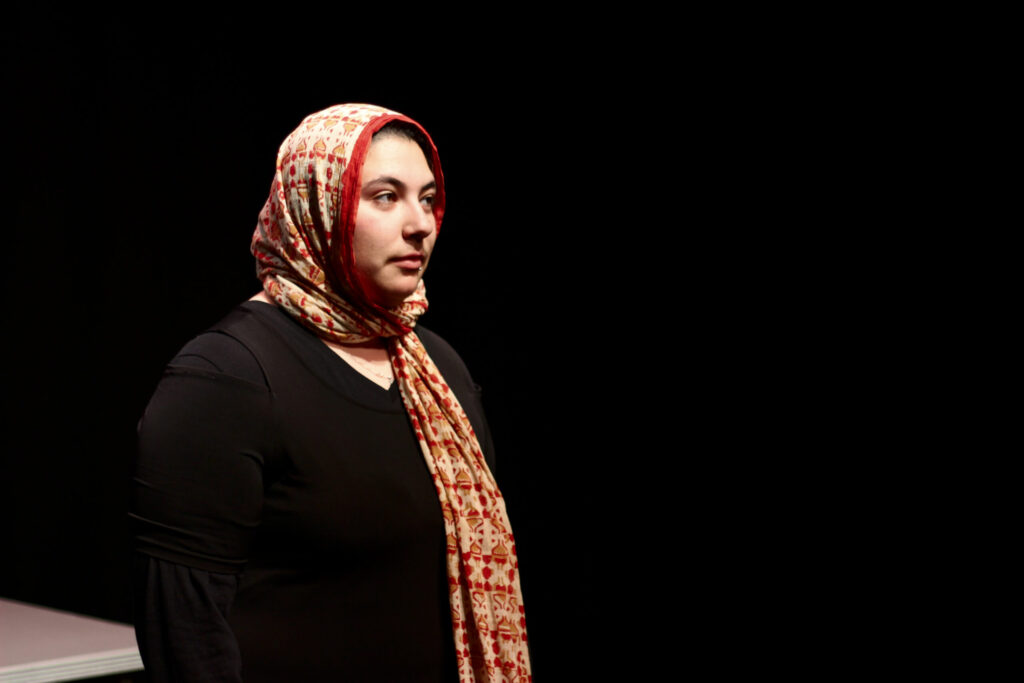
Shay Mckendrick in Counting in Sha’ab by Emma Goldman-Sherman, UNESCO Cities of Literature Short Play Festival, Dunedin, New Zealand, September 2019. Photo credit: Martyn Robert
Several plays in the festival examine identity, including queer and/or non-binary identities. Michael Metzger’s autobiographical, postdramatic work The Killing Shed examines rural and gay masculinities in Aotearoa/New Zealand; Metzger performed an extract from the play at the festival. Tymesha Cousins’ Senseless also explores queer identities; using live action and filmed sequences, she delves into the lives of a group of friends who are forced to deal with competing emotions brought about by love and death. Indeed, death was an underlying concern in a number of the works in the festival. Peta Tait’s Tree Bones portrays the complex elasticity of time as the central character, Sarah, navigates her feelings about the death of her adult daughter. Meanwhile in Finnius Teppett’s delicate, Absurdist Cold Season, death is depicted metaphorically, even whimsically, as a young woman slowly turns into a tomato plant. Counting in Sha’ab, by Emma Goldman-Sherman and set in Baghdad in 2015, depicts a neighborhood community in the immediate and fatal aftermath of the detonation of a car bomb outside a supermarket.
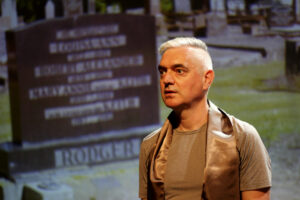
Michael Metzger performs in his play The Killing Shed , UNESCO Cities of Literature Short Play Festival, Dunedin, New Zealand, September 2019. Photo credit: Martyn Roberts
Several playwrights focussed on communication in the digital age. In the two-hander Modern Love by Thomas L. Pierce, and Walkie Talkie by S. P. O’Brien, characters communicate primarily or exclusively via digital devices.
All but two productions were performed live on stage in Allen Hall Theatre, at the University: The Mug, by Amir Al-Azarki, was recorded as a voice drama, and Annabel Wilson’s #musiciansaresexierthannormalpeople was performed outdoors. The Mug is a powerful work that explores the life of an Iraqi actor who has emigrated to Canada, and whose life and experiences have been exploited by actors and academics. #musicians was presented as an immersive work outside Allen Hall Theatre; chairs, tables, and café umbrellas were set up around a food truck with actors performing amongst the audience.
In the wake of the Festival, productions have been arranged for at least four plays that were staged or workshopped, although all have been affected by the Covid-19 pandemic: White Men and Dayboy were to have appeared in the Dunedin Fringe in March 2020, The Tom was to be performed at La Mama (Melbourne) in May, also in May, the Heidelberg group planned a production of the full script of Elisabeth Easther’s Seed, from which a selection of scenes had been presented at the Festival. Dayboy duly received a two-show season in Dunedin in September 2020.
Many students involved in the UNESCO Cities of Literature Short Play Festival are still studying at the University of Otago, their learning from the festival informing their on-going practice as directors, producers, actors, technicians, designers, playwrights, and dramaturgs.
This post was written by the author in their personal capacity.The opinions expressed in this article are the author’s own and do not reflect the view of The Theatre Times, their staff or collaborators.
This post was written by Hilary Halba and Stuart Young.
The views expressed here belong to the author and do not necessarily reflect our views and opinions.

